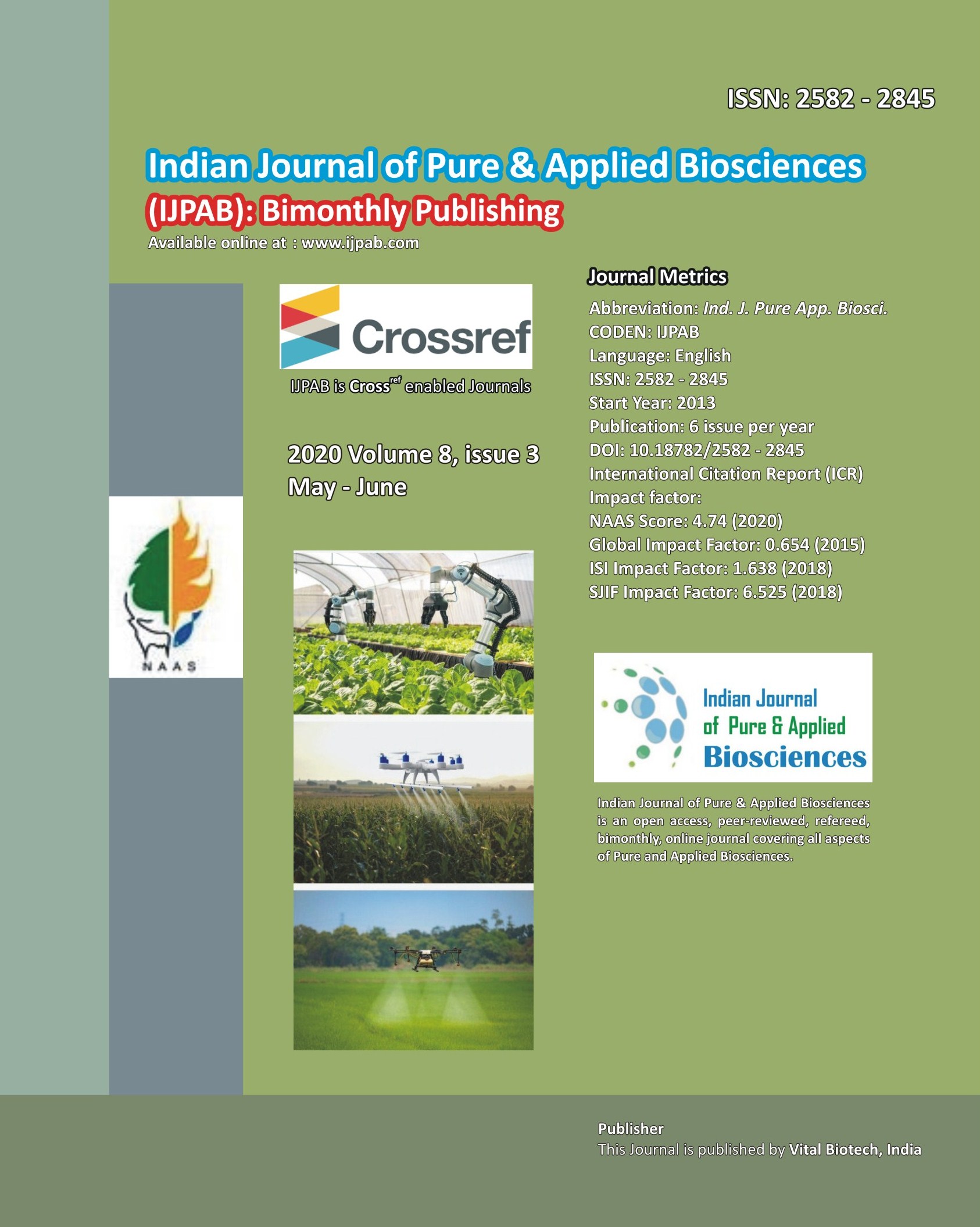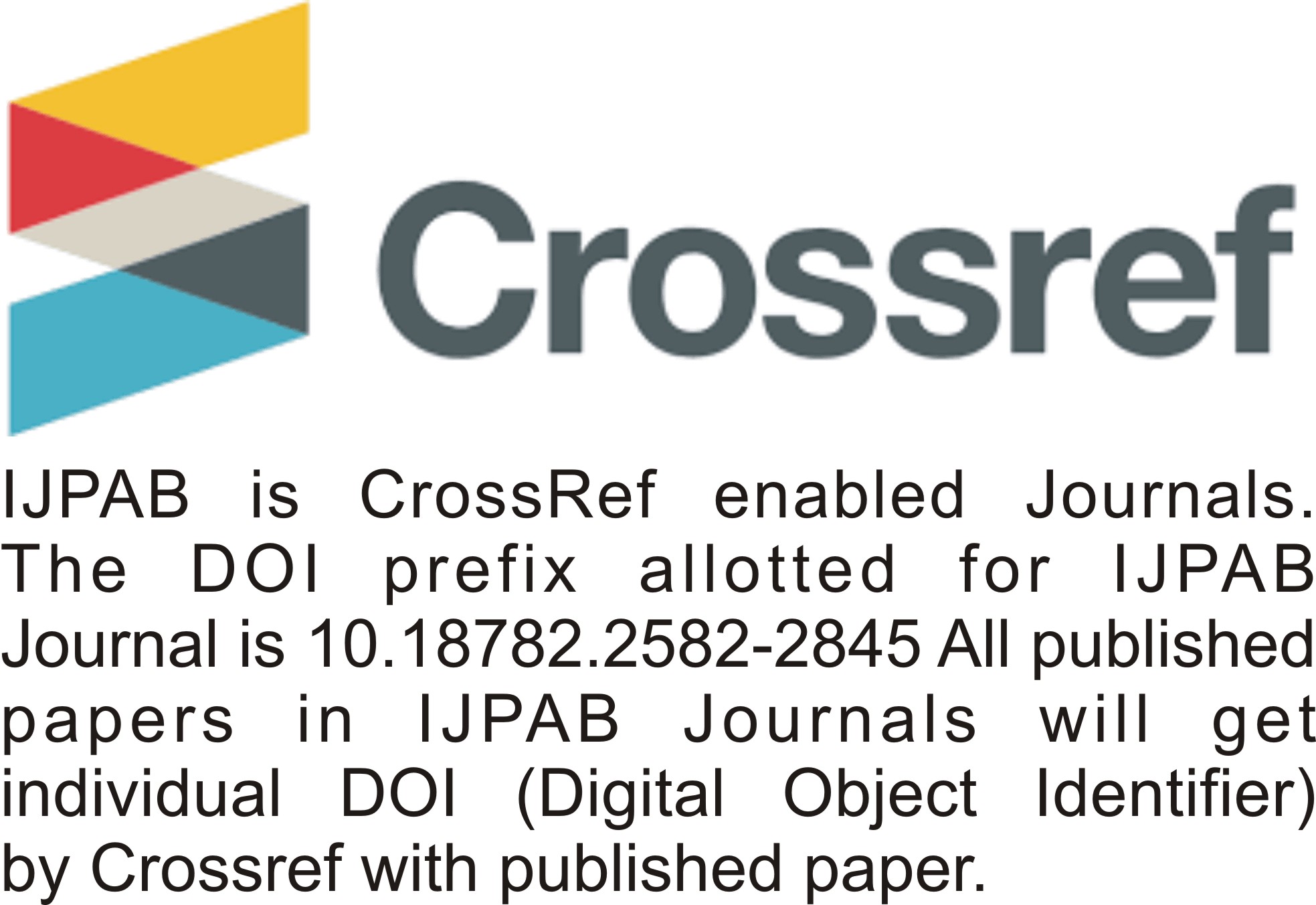
-
No. 772, Basant Vihar, Kota
Rajasthan-324009 India
-
Call Us On
+91 9784677044
-
Mail Us @
editor@ijpab.com
Indian Journal of Pure & Applied Biosciences (IJPAB)
Year : 2020, Volume : 8, Issue : 3
First page : (342) Last page : (345)
Article doi: : http://dx.doi.org/10.18782/2582-2845.8070
An Economic Analysis of Production of Organic Tea Planting Materials in Coochbehar District of West Bengal
Kaki Ranjit1* and Himadri Bhattachrjee2
1Ph. D. Scholar, 2Professor,
Department of Plantation Crops and Processing, Faculty of Horticulture,
Cooch Behar (UBKV, Pundibari) – West Bengal, India
*Corresponding Author E-mail: kakiranjit@gmail.com
Received: 30.04.2020 | Revised: 31.05.2020 | Accepted: 8.06.2020
ABSTRACT
Tea is one of the important plantation crops of India as well as West Bengal, contributes considerably in national economy and earns foreign exchange. During 2014-15, total production of tea in India was 1233.14 m kg, out of which only100 m kg were organic tea. Mainly due to importers demand of organic tea, there is urgent need to enhance organic production of tea crop. Indiscriminate use of inorganic agricultural inputs-fertilizers, weedicides, pesticide and fungicides and lesser use of organic matters deplete soil health, residues remain beyond MRL in processed tea, ultimately reduction in export. Tea Board provides 55% subsidy for organic tea production. For organic cultivation of tea, the planting materials should also be organically produced in nursery, which is very scanty for perennial crops in general and plantation crops in particular. With this background, the present investigation was carried out at instructional farm of the department of Plantation Crops and Processing, UBKV, Pundibari, located at 26019′86′′ N Latitude and 890 23′53′′ E Longitude at an elevation of 43 m mslwith the objective to evaluate the economics of organically production of planting materials of tea. The experiment was conducted from 2013 to 2015 and laid out in completely randomized block design. For evaluation of economics of organic planting material of tea in our experiment, 4,000 plantable plants were produced, which incurred a total cost of Rs 23,317 the cost of production was Rs 5.83 per plant. So, considering the market price of Rs. 15.00 per planting material, an income of Rs 60,000.00 which could fetch a profit of Rs.36,683.00 within 9-12 months; benefit: cost ratio calculated to be 2.57.
Keywords: Tea, Planting materials, Nursery, Cost, Returns
Full Text : PDF; Journal doi : http://dx.doi.org/10.18782
Cite this article: Ranjit, K. and Bhattachrjee, H. (2020). An Economic Analysis of Production of Organic Tea Planting Materials in Coochbehar District of West Bengal, Ind. J. Pure App. Biosci. 8(3), 342-345. doi: http://dx.doi.org/10.18782/2582-2845.8070

